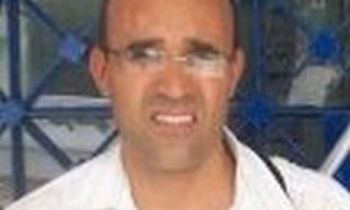There is a direct correlation between terrorist attacks and media coverage, two economists have contended. Their conclusion, contained in the study entitled Blood and Ink: The Common-Interest-Game Between Terrorists and the Media, is that the relationship between terrorists and the media is symbiotic.

The researchers – Bruno S Frey of the University of Zurich and Dominic Rohner of Cambridge University – counted direct references to terrorism between 1998 and 2005 in the New York Times and Neue Zuercher Zeitung, a respected Swiss newspaper. They also collected data on terrorist attacks around the world during that period. Using a statistical procedure called the Granger Causality Test, they attempted to determine whether more coverage directly led to more attacks.
The results, Frey and Rohner have argued, were unequivocal: Coverage caused more attacks, and attacks caused more coverage – a mutually beneficial spiral of death that they say has increased because of a heightened interest in terrorism since September 11, 2001. It's a macabre example of win-win in what the economists called a "common-interest game."
"Both the media and terrorists benefit from terrorist incidents," Frey and Rohner said. Terrorists get free publicity for themselves and their cause. The media, meanwhile, make money "as reports of terror attacks increase newspaper sales and the number of television viewers."
"Terrorist attacks are a particular form of communication by terrorist groups. The media are used as a platform for securing a broad dissemination of the terrorists' ideology. The media benefit from terrorism, as reports of terror attacks increase newspaper sales and the number of television viewers," they said.
One partial solution, the researchers say, can be denial of publicity to the groups by not publicly naming the attackers. On whether the Internet can be a spolisport, Frey offered a spin theory, "Many experiences show us that in virtually all cases several groups claimed responsibility for a particular terrorist act. I would like the same rule that obtains within a country: Nobody can be called a criminal – in our case a terrorist – if this has not been established by a court of law."
The study also showed that terrorism in developing countries was less important to the Western media than terrorism in the developed world. The result was that terrorists in, say, Africa, feel compelled to commit bloodier acts with higher body counts in order to get coverage, while a smaller operation in Europe or North America might generate more coverage.
CBS Public Eye author Brian Montopoli wrote, "Unequivocal? That's quite a determination for a study with what to me seems a relatively small sample size… I am sceptical of the notion that that were enough data to prove an unequivocal correlation, particularly in light of all of the other variables at play."
"And there's also the matter of the value of the self-censorship – would it be worth it to deny people such information? If the correlation is unequivocal, as the researchers claim, you could perhaps make the case that it is a worthwhile trade-off. But I think we should be extremely hesitant to embrace the idea that refusing to publicly acknowledge the identity of our attackers will somehow make them go away," he wrote.

London Free Press Editor-in-Chief Paul Berton said, "Granted, the media tend to cover sudden events (explosions) with more emphasis than gradual events (peace negotiations), but the only constant is change — anything different gets the biggest headlines. Unfortunately, this may also mean that attackers, understanding this, will look for something bigger, better or closer to attract the media's attention."
He continued, "Editors have been aware of this for centuries. We don't want to be part of the problem, but we don't want to be accused of censorship or ignoring important events either. Some editors refuse to publish reports of such things as bomb scares for this reason. All of us are looking for ways to serve readers (and yes, sell newspapers) without encouraging violence."
Granger causality is a technique for determining whether one time series is useful in forecasting another. Ordinarily, regressions reflect "mere" correlations, but Clive Granger, who won a Nobel Prize in Economics, argued that there is an interpretation of a set of tests as revealing something about causality.









